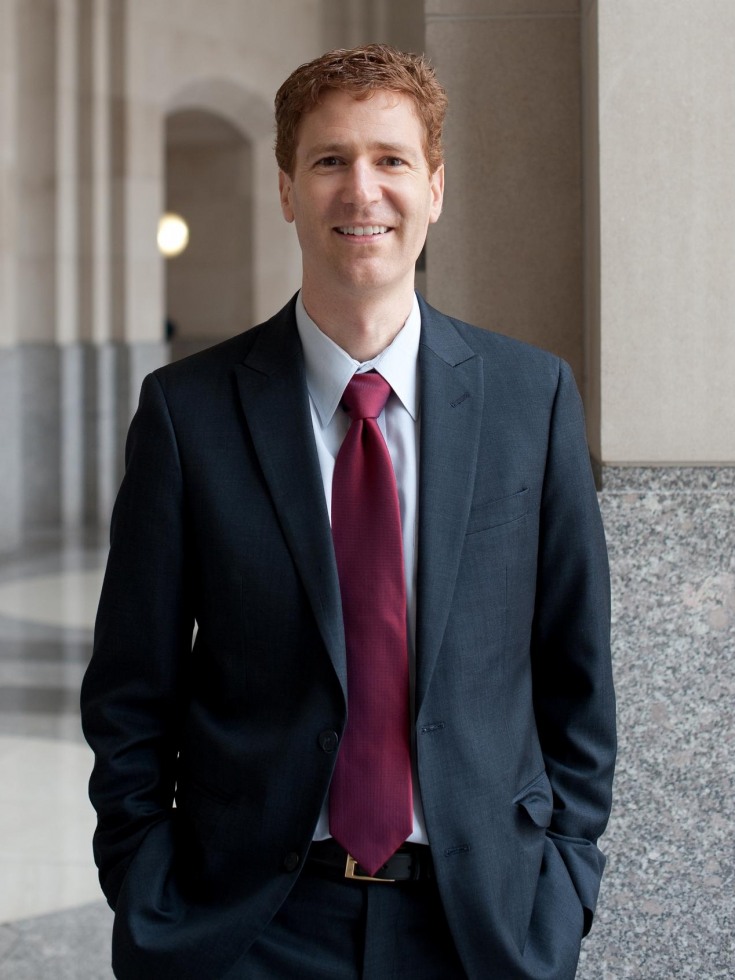What might the new Biden Administration mean for the environment?
A select group of IBES fellows offers their reflections about what the new Presidential Administration here in the U.S. could mean for the climate and other environmental concerns.
Already we see signs that the Biden administration will repeal Trump-era policies that favored industry profits over human health. The new administration played a role in dismissing EPA’s “secret science rule”, so that regulators can once again make evidence-based policies using results from human-health studies. In some ways, this is a hollow victory as it brings us back to where we were four years ago. Thus, we need to continue advocating for sensible policies that protect and promote human health, especially for those who are most vulnerable.

The Biden administration is off to a good start by making climate change a top-level priority, far more so than any previous presidential administration. Biden has appointed cabinet-level appointees to deal with climate change, including John Kerry, a former Secretary of State. Just as importantly, Biden is using the COVID19 pandemic response — which potentially includes huge economic recovery spending — to “build back better” at the domestic level. That means less government money for the fossil fuel industry and more for public infrastructure that supports renewables, electric vehicles, and other clean technology. The Biden team should continue to use domestic policy to support foreign policy efforts such as the Paris Agreement. Conversely, he can use foreign policy initiatives, like encouraging China to do more to reduce its emissions, to reduce concerns about global “free riding” from U.S. opponents to pro-climate policy.

The Biden administration has already shown that climate change is a central issue, through executive orders and cabinet appointments, and with policy goals to "build back better" and more open attention to environmental justice than in previous presidencies. It is heartening to see, particularly after four years of not just inaction on climate change but active backsliding. The challenge of making climate change laws, rather than acting through executive orders and agency decisions that as both the Obama and Trump years show are easily reversed, remains a major one, particularly given the recalcitrant position of the Republican Party not just on climate legislation but anything proposed by their opposition. Linking climate planning and emissions goals to much-needed infrastructure rebuilding seems like a wise attempt to thread this needle, and hopefully one that can avoid Trump's legacy of anti-regulatory judges on the Supreme Court. In short: it's a start, one that will require citizen support and action to try and prevent watered down, un-equitable "solutions" from emerging out of the morass of good intent and party politics.

Climate change will exacerbate the affordable housing crisis in the US. The Biden Administration recognizes that long-standing racially discriminatory housing practices and policies have excluded African-Americans from safe and affordable housing, and now, as extreme weather events have become more frequent, they are poorly protected from these hazards. Protecting people against the effects of climate change means ensuring that everyone has a safe, affordable home and community that will be resilient to extreme weather events.

The new administration could make a significant shift in the way we regulate and subsidize agriculture - a sector that contributes 10% of total US GHG emissions, yet is often ignored by climate change policy. While currently a large GHG contributor, the agricultural sector is in a unique position where it can play an active role in both GHG mitigation and climate change adaptation. Drafted language in the Green New Deal encourages sustainable farming practices such as harnessing energy from what is currently GHG emitting waste, conserving more land for soil and ecosystem restoration, and shifting farming practices to store carbon. If implemented, these policies could shift agriculture from a net emitter to a net sink while simultaneously bettering ecosystems and farmer livelihoods in the US.

The intersection between climate change, freshwater delivery, and the structural inequities that are the legacy of racism in the US is a critical challenge for the Biden administration. Equitable access to abundant and safe freshwater is a human right; one that is violated daily across the US because of poor and failing infrastructure, mismanagement and corruption, and the extremes of flood and drought that attend the changing climate. It is critical to address issues of water policy, expertise, and infrastructure so that the country can right existing wrongs for people of color, including Indigenous peoples, and become more resilient to the coming challenges.

The Biden Administration is taking some excellent first steps to move the USA in a positive direction on addressing climate change and other environmental issues. Is it perfect? No. But the vast damage being done both directly to the environment and to the ability of our government to be of use in lessening our harm was so great under the Trump Administration that this shift is quite striking. I work on the UN climate negotiations, and have brought Brown students to the talks around the world, including the negotiations leading to the Paris Agreement. Biden's appointment of old hand John Kerry to lead on that is a good start, but we need to be sure we are not just going back to Obama-era policies and politics. And I also work on climate denial and obstruction in the United States, and we have not heard much from the Biden administration about what they intend to do about that. The shift in Senate control of committee chairships seems more important on that, since they can launch investigations now of who was deceiving us and how.

While the impacts of climate change have become more and more apparent over just the past few years, the federal government has not integrated these changes into flood risk maps administered by the Federal Emergency Management Agency (FEMA). If the new administration directs or enables FEMA to begin considering sea-level rise and climate change in assessment of flood zones, many homes will be reclassified into higher risk areas. This could lead to higher insurance premiums, but also to many homes that would be newly required to purchase flood insurance. Such changes would be politically unpopular and it's possible that new legislation would be passed or funding enabled to offset those costs, but such an outcome is uncertain. What is certain is that the current National Flood Insurance Program is woefully underfunded relative to growing needs, but also that the future expenses from coastal floods in the US will be astronomically high. Future loss and human misery could be reduced by planning now with the best available information and reducing any future construction in areas not suitable going forward.

The Biden Team seems committed to mobilizing the engines of the capitalism to address climate change. I am most interested in seeing how this strategy comes together. The appointment of Brian Deese to lead the Council of Economic Advisors signals that leveraging the power of finance and investment capital will be part of the strategy. Government agreements, regulations, and programs are important tools. However, the complexity of the climate change problem requires mobilizing every force that drives markets and economic behavior. To see the Biden team develop a systems-level strategy is especially encouraging. We will have to see how the system responds.
